6 Things You May Not Know About Introverts, Illustrated

We don’t need others around us to have fun, and we don’t go stir crazy when life forces us to be alone.
Right before starting 10th grade, a relative told me that high school was all about being outgoing and popular. As a fairly quiet, awkward guy, that really stuck with me. For the next three years and on into college, I tried to be the most gregarious person I knew how to be. Until one day in a student lounge, an acquaintance told me point blank, “You’re so fake!”
In an effort to fit in and be well-liked, I was offering the world an obviously inauthentic self. I was trying to be something I wasn’t. So began my quest to get in touch with who I really was. In 1997, my fiancée (now wife) and I came across a book that introduced us to the Myers-Briggs Type Indicator. I finally had a name for what I was: an introvert!
But who wants to be an introvert? In a world that generally favors extroverted traits, like being gregarious, thinking quickly on one’s feet, and having the gift of gab, life can seem difficult for those of us who are more reserved, unable to endure a lot of social stimulation, and need more time to process information.
We’re often misunderstood and left feeling undervalued and exhausted. But as I’ve discovered more about introversion and embraced how I’ve been naturally wired, I’ve come to realize that being an introvert can be pretty terrific. Going with the flow of my natural wiring makes all the difference in the world.
It’s great to be an introvert. Here are six things you might not know about us “quiet ones,” with illustrations from my book, Text, Don’t Call.
What You Might Not Know About Introverts
1. We’re amazing soloists.
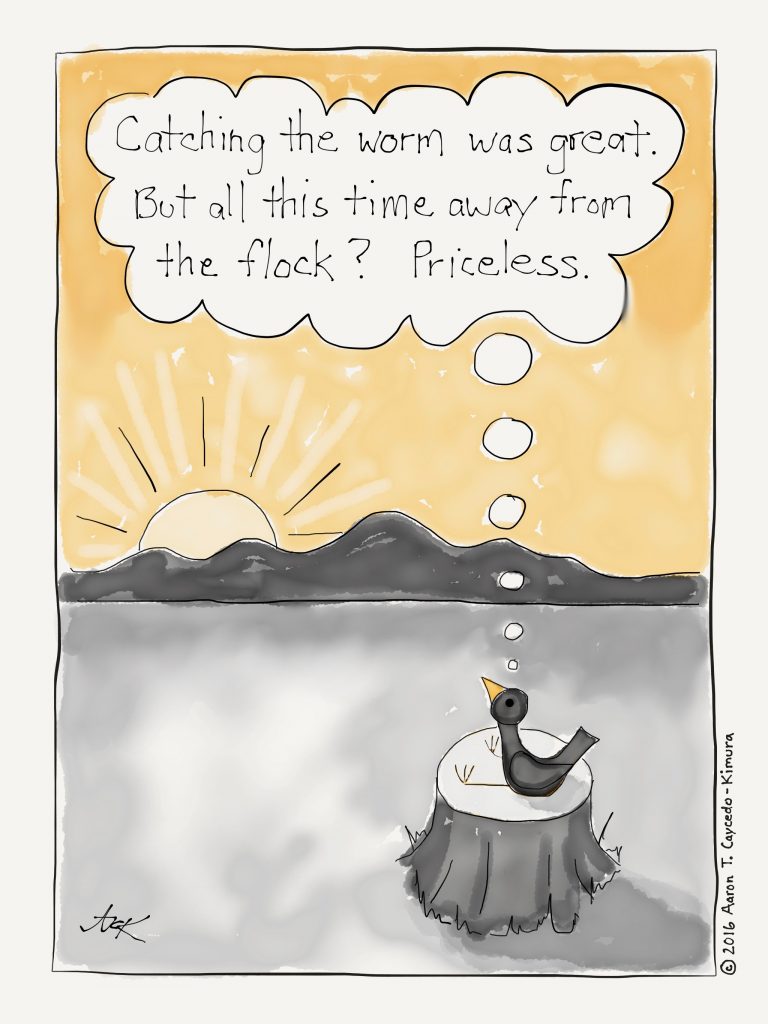
Because introverts direct their attention inward and prefer less outside stimulation, we’re naturally independent. We’re comfortable being alone and enjoy doing things our own way in our own time. We don’t need others around us to have fun, and we don’t go stir crazy when life forces us to be alone. Although honing ideas through collaboration is important, creativity begins and thrives in solitude.
Many artistic pursuits involve being alone, such as writing, painting, and music — even though you may perform with others, there are many hours of practicing solo that are required. Librarians, researchers, and scientists also need to spend a lot of time by themselves. I find that I’m most productive when I can be by myself (writing and making art), not having to bend to the will and timing of others. I can just allow the creativity to flow and take me where it wants to go.
2. For us, less is really more.
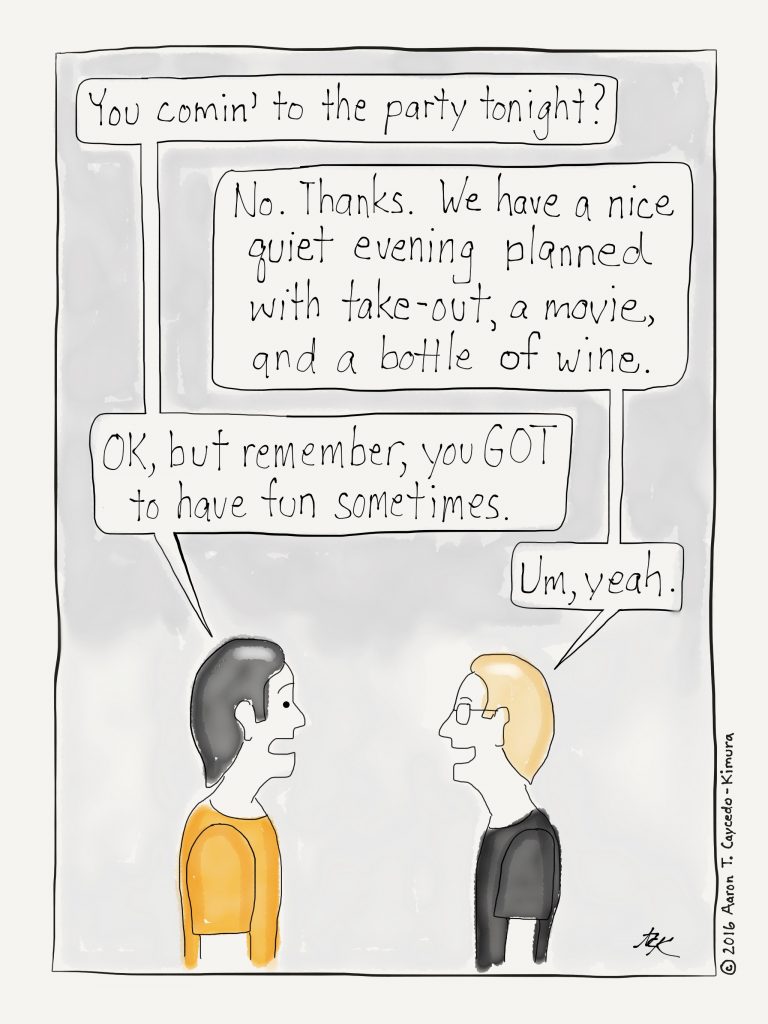
Preferring less outside stimulation may also lead to a simpler lifestyle, which in many cases means spending less money. Things like getting together frequently with friends, going shopping, and attending ticketed events all add up. For introverts, those are great things to do once in a while, but because we’re primarily occupied and entertained in our heads, we gravitate toward quieter environments and enjoy simple pleasures: a good book, a walk on the beach, a hike in the mountains, a movie at home, an amazing cup of coffee or tea.
I love spending my time writing and drawing in my home office. I also enjoy painting and crafting in my studio and working outside in the yard. That may seem boring to some, but it’s what makes me happy.
3. We dive past the surface and explore the depths.
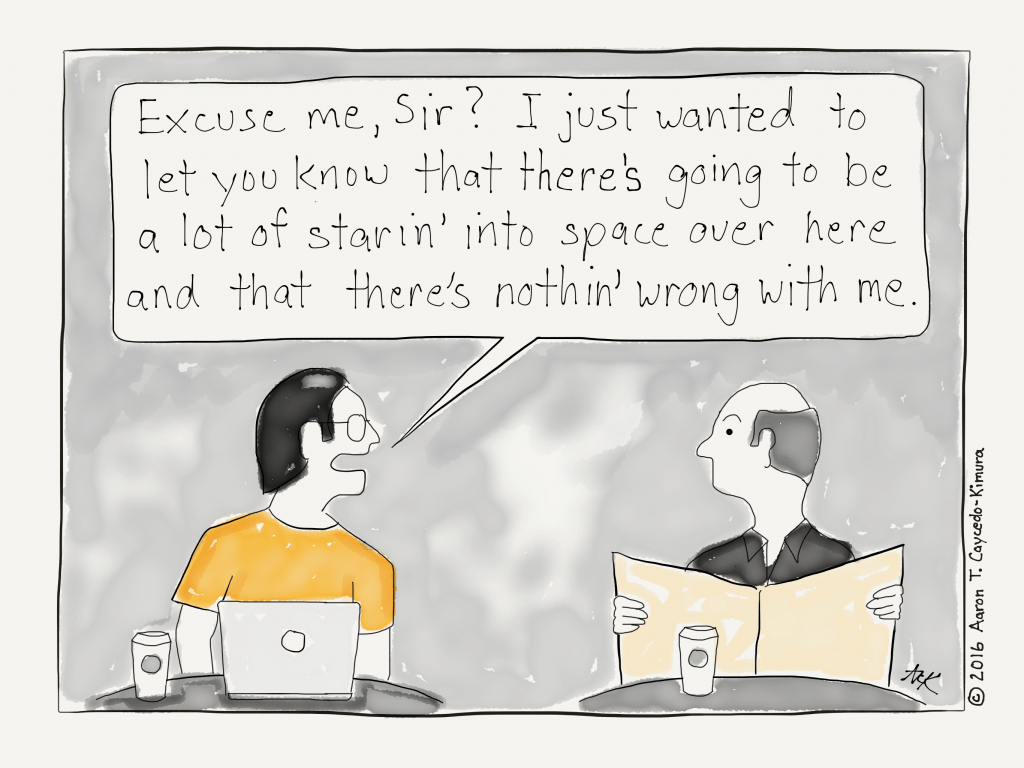
So, what goes on in our heads? We ponder the deep things in life and tend to really know ourselves well, which is essential in becoming centered. We’re able to focus and concentrate well, explore and cultivate ideas, and dream our wildest dreams. Our rich inner worlds keep us stimulated with never-ending exploration. What I actually write and draw on the page are only small edited manifestations of all the dreaming, processing, and problem-solving that goes on in my head. When I’m staring off into space, I’m actually working.
4. Neighbors are less likely to complain about us.
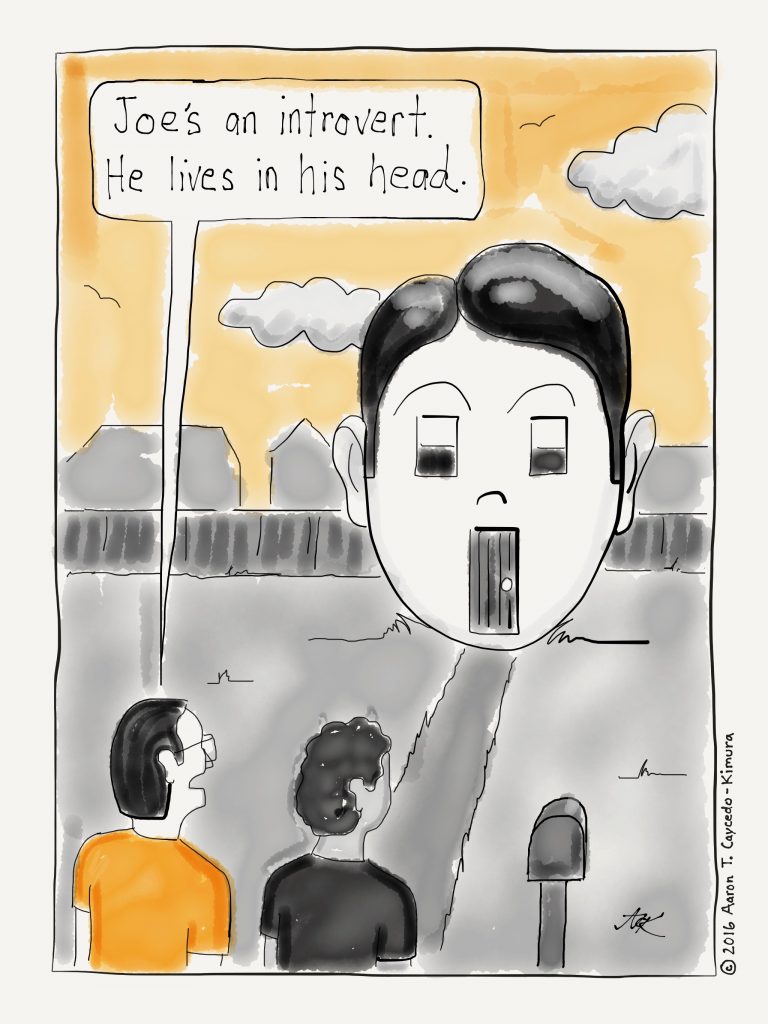
Introverts generally live quiet lives. We may make our own noise but not usually to the point of disturbing the peace. We appreciate silence and solitude, and because of this, we are more likely to be in tune with nature. We also tend to mind our own business. Although we may care deeply about people, we’re generally not intrusive busy bodies.
In our younger days, my wife and I moved around and rented a lot. We consistently found great favor with our landlords because, among other things, we were always considerate of other tenants, as well as the landlords themselves.
5. We socialize selectively and deliberately.

Introverts are social beings just like everyone else, but we prefer to socialize differently. Too much “people time,” and we get wiped out! We prefer a handful of deep relationships to a lot of acquaintances. We prefer to get together one-on-one or with a very small group of friends. We like giving personalized attention to the ones we love, so if we’re with you, you know we want to be with you.
In friendship, introverts tend to make trustworthy confidants. We’re excellent listeners and amazing observers. Because of this, we’re apt to be very insightful. Introverts often find themselves as the go-to person when friends need a shoulder to cry on or advice for a particular life problem.
You can thrive as an introvert or a sensitive person in a loud world. Subscribe to our newsletter. Once a week, you’ll get empowering tips and insights in your inbox. Click here to subscribe.
6. We think before we speak and look before we leap.
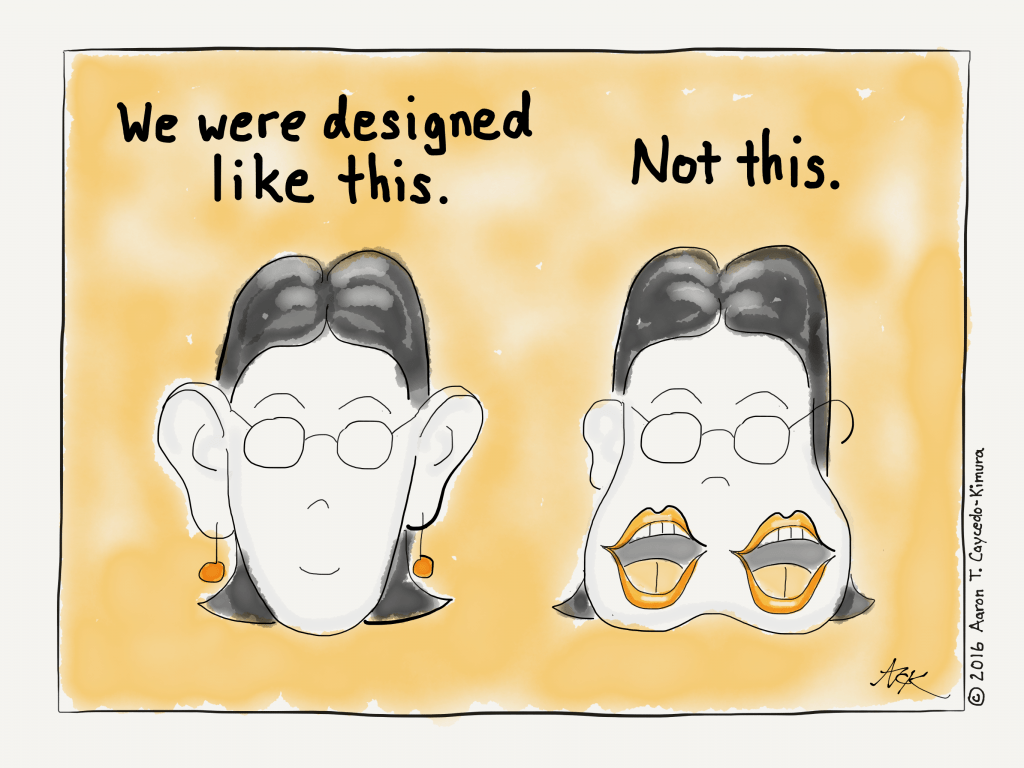
Introverts are notorious processors. We think before we speak and act. We consider different possibilities and outcomes before we formulate an answer. And after all that processing, we may remain quiet if we feel we have nothing worth saying. To us, remaining quiet is better than just driveling to fill the void. Thinking before speaking and looking before leaping can mean avoiding hurt feelings or getting into trouble. Someone once told me, “You are the master of your words before they leave your mouth.” Once they’re out there, it’s difficult to take them back.
Want to see more of my illustrations? Check out my book Text, Don’t Call: An Illustrated Guide to the Introverted Life. ![]()
You might like:
- 24 Cartoons That Introverts (Especially INFJs) Will Relate To
- These 19 ‘Extroverted’ Behaviors Annoy Introverts the Most
- Why Each Introverted Myers-Briggs Personality Type Is Awake at 3 a.m.
We participate in the Amazon affiliate program. A version of this article was originally published on MindBodyGreen.com. It is republished here with permission from the author.
